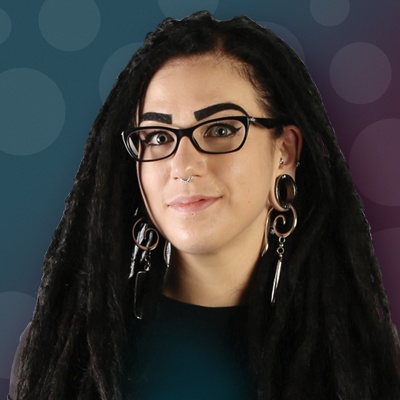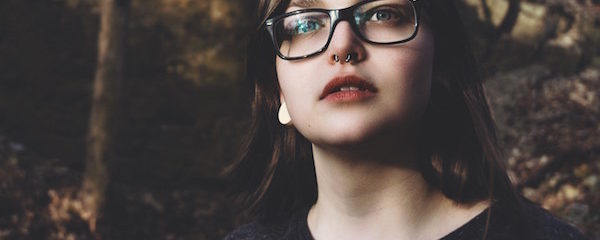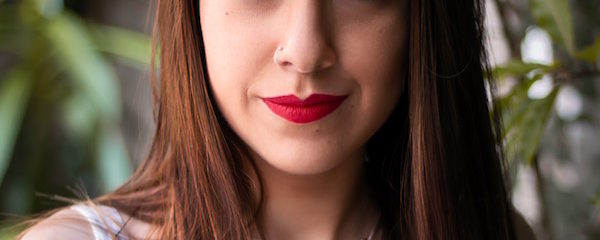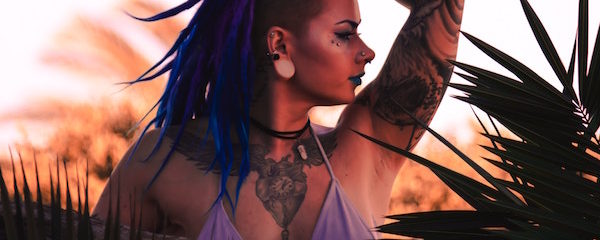What’s It Like to be a Piercer? Meet Courtney Jane Maxwell November 12, 2019 – Posted in: Interviews – Tags: body modification, body piercings, interview, piercer
In order to be the best that we can be, we’ve added some fabulous piercers to our NeilCleanse team. Meet Courtney Jane Maxwell.
Maxwell has been a professional piercer since 2005. In that time, she’s met tons of interesting people, taught dozens of classes, and has had her fair share of unique experiences as a female in the industry.
Are you interested in becoming a piercer? Are you pierced and simply curious about the lifestyle of a piercer? Maybe you’re thinking about getting a piercing and would like to learn more about the people behind the needle.
Here’s an inside look at the life of a piercer.
When did you first get into body piercing, and what initially sparked your interest?
I don’t remember ever not being really interested in bodies (mine or others’), even when I was a very small child. When I discovered the concept of piercing in grade school, it was a very natural fit with my other interests and curiosities. When I was 14, my mother agreed to take me to be pierced in an actual studio, and I fell in love with the process. The piercer did a remarkable job of making a nervous, dorky kid feel totally okay sitting in the middle of a very old-school and intimidating shop, surrounded by strangers getting tattooed. His ability to calmly guide someone so different from him through such an unusual situation left a mark for on me for life. I wanted to do that for other people, and I never changed my mind.
What cultures and backgrounds have you learned more about because of piercing?
A fair amount of what I have learned about other people and cultures has come from my job experience. I have been doing this since I was 20 years old, so really, my entire adult life. It puts you together with people who are different than you are over and over again, every day. I have met people who were just released from prison after decades. Women who have been circumcised involuntarily as young children in their home countries. People who live voluntarily on the road and off the grid. Pastors, politicians, and artists. People from Norway, Vietnam, Brazil, Kenya, even tiny islands I have never even heard of. I have learned little bits about so many cultures and subcultures through my clients, and it still happens all the time. This is a massive part of why I get up and go to work each day.
What are some of the most fascinating things you’ve learned about people who get pierced since you started piercing?
I’m always fascinated by the percentage of people who get pierced because of a specific event. Plenty of people have thought about a piercing for ages, but when they finally decide to come and do it, it’s amazing how many of them have something that sparked it. Something that was significant to them, be it good or bad. Anything from quitting a job they hated to having an old friend visit they haven’t seen in years, or something as simple as making it through final exams. I think humans long for “ritual” in a way we aren’t even aware of half the time.
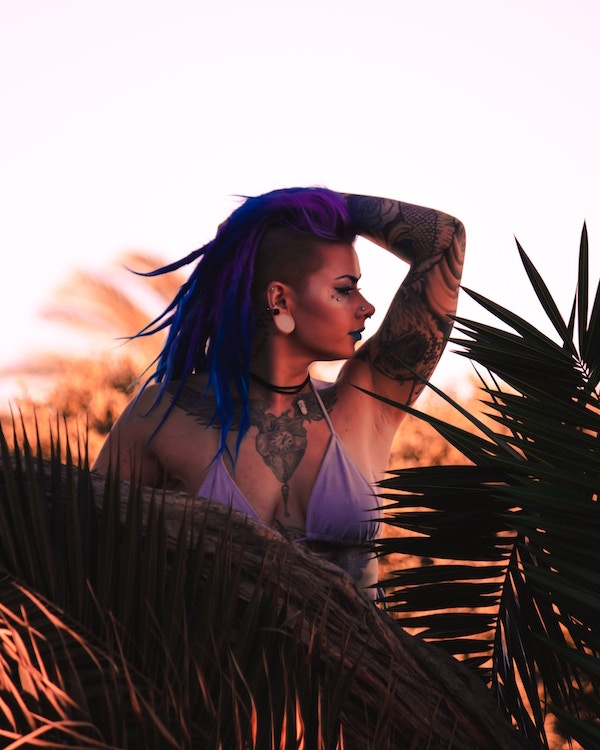
“I have learned little bits about so many cultures and subcultures through my clients, and it still happens all the time. This is a massive part of why I get up and go to work each day.”
How long have you been an APP member and what classes do you teach at the APP conference?
I have been a member for 6 – 7 years? I can’t remember which part of the calendar [my anniversary] falls on! I have taught a variety of things over the years at the APP conference. I usually moderate the Disorders in the Industry round table at the beginning of the conference each year. I did the Strategic Marking workshop for a few years, a class on customer service philosophy, a nipple class, Atypical Anatomy, an APP talk on bridging the gap between the kink community and the piercing room, and I’ve moderated several other round table groups in various years.
What is your favorite piercing(s) to perform, and why?
I absolutely love doing nipple piercings because it has to be one of the most body positive things I experience with people. The response clients have when they see themselves is incredible and sharing that with them makes my day.
I also love doing rook piercings and have always adored the way they look. It’s one of the few ear piercings where you see both sides of the jewelry from the front of the ear, which totally changes the jewelry considerations and options. I love doing eyebrow and navel piercings for that same reason: the way the jewelry is oriented. It probably doesn’t hurt that I enjoy the sort of “geometry problem” involved in planning the placement of all three of these.
What are the pros and cons of being a female piercer in the industry?
I think it’s worth prefacing this with the fact that everyone experiences this sort of thing differently, so it simply can’t be generalized.
When speaking for myself, the first and most noticeable aspect of being a non-male piercer is that people are pretty comfortable being vulnerable around you. I have plenty of clients who might be willing to open up much more to me based on my gender alone, which can be both positive and negative depending on the circumstances. Being aware of this is important because it can be used in a really wonderful way, but it can also require being much more firm with your boundaries as well to keep interactions healthy and professional.
One of the perks to people being more comfortable is that I am certainly able to ask more questions and say more things directly without people getting uncomfortable, especially when it comes to their body and their health. This allows me to be much more to the point when I think I can do my job better if I had more information, which is really helpful.
I think some people are a little less likely to appreciate/be impressed by your patience and bedside manner because there is a common cultural sentiment that women are naturally more nurturing. This has certainly come up when piercing earlobes on young children; it’s common for people to ask how many kids I have. I’m often given the impression they think I’m doing so well because I am female/possibly a mother so that it must be “natural” rather than the fact that I’m just good at my job.
Financially, I tend to get tipped less than male piercers in comparable situations because a larger majority of my clientele is female. Women tend to tip women less, strangely enough.
What advice would you give any women about becoming a professional piercer?
I think expecting firmly established boundaries and negotiation of the curriculum/training process/expectations is the best thing you can do for yourself. There is so much about the piercing industry that is “alternative” and anti-corporate, and I feel like this drives a lack of attention to formalities when and where they are extremely healthy and helpful. The excitement of finding someone to teach you how to pierce and the desire to break into the industry can be used against you, be it malicious or simply through thoughtlessness. Communicate clearly from day one, and keep doing it.
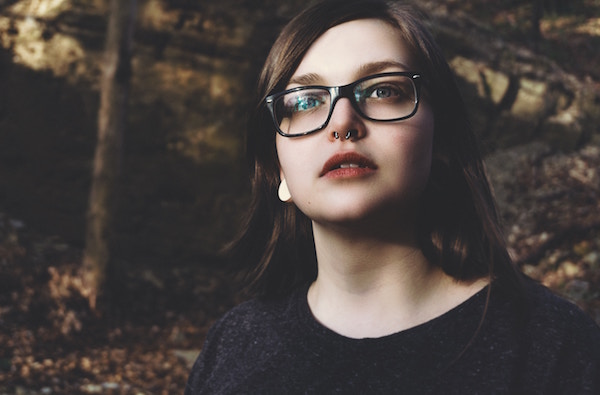
“Firmly established boundaries… is the best thing that you can do for yourself. Communicate clearly from day one, and keep doing it.”
How do you think piercing trends have changed since you started?
Piercing has transformed so tremendously in the course of my career. Social media and quality camera phones helped further push piercing into the mainstream and helped drive a totally new aesthetic motive. (I can’t tell you how many times a day I hear someone ask if we have anything smaller!) The biggest demands these days are for gold and multiples of anything. The ear has become a massive focus of what we do because it is so much more accessible to people who have more conservative jobs or lifestyles, as well as people who would have not previously been drawn to a “pierced” look. It allows people to get the thrill of collecting more piercings and more jewelry while still leaving their face a little more traditional. It’s also notable that the availability of a new generation of body jewelry styles has opened the doors artistically for the piercers and their clients. Piercing trends are far more jewelry-driven than ever before.
Where do you see the culture of body piercing going within the next 10 years?
I wish I could predict. I don’t think piercing is going away, though.
Realistically, piercing was only absent from some areas of the globe for just a blip in history. I’m sure it will keep changing and evolving indefinitely, but I think, in the big picture, it’s here to stay. I’m mostly interested in seeing how the body jewelry world grows. Technology in design and manufacturing is sure to start offering us new innovations in the near future. I’m excited to see what will come as new biocompatible materials become available as well. The cultural reach of modern body piercing is largely dependent on the aesthetic options available. The more options, the more ways people can use piercings as a means of decoration and expression and the more people will find piercing something that suits their personal tastes. So the more we have to offer in the jewelry world, the more piercings will grow as a whole.
Do you think people are more accepting of body piercings and body modifications since you started?
100%. Piercing has become so much more normal. As I mentioned before, the change in aesthetics has helped greatly. The old-school look of piercing was something counter to the societal norms of the time, oftentimes for the sake of being just that. The rise of jewelry options that appeal to mainstream tastes has changed who gets pierced and has also played a big role in how common and acceptable piercing has become. There are always going to be people who use piercing in a way that the majority may find unappealing, but the fact that the sheer idea of piercing isn’t taboo now is huge.
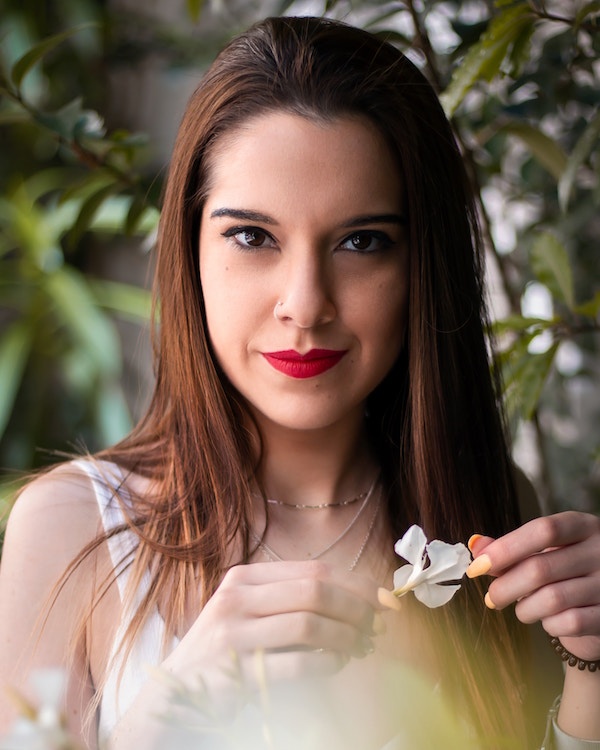
“The rise of jewelry options that appeal to mainstream tastes has changed who gets pierced and has also played a big role in how common and acceptable piercing has become.”
If you weren’t a professional piercer, what do you think you would do for work?
I’ve always said it’s very likely that I would be social worker if I wasn’t a piercer. If I could do it all twice, I would have loved to study Neuroscience. But if money wasn’t a thing, I can think of a long list of non-profits I would be delighted to spend my time with. I get the feeling my “retirement” is just going to end up with me working just as much, but for free!
What is your favorite thing about being a body piercer today?
I still love piercing for the same reason I fell in love with it when I was 14. The brief little window I get with each person is a learning experience every time and it’s never the same twice. It’s pretty remarkable that I get to have that over and over again each day.


